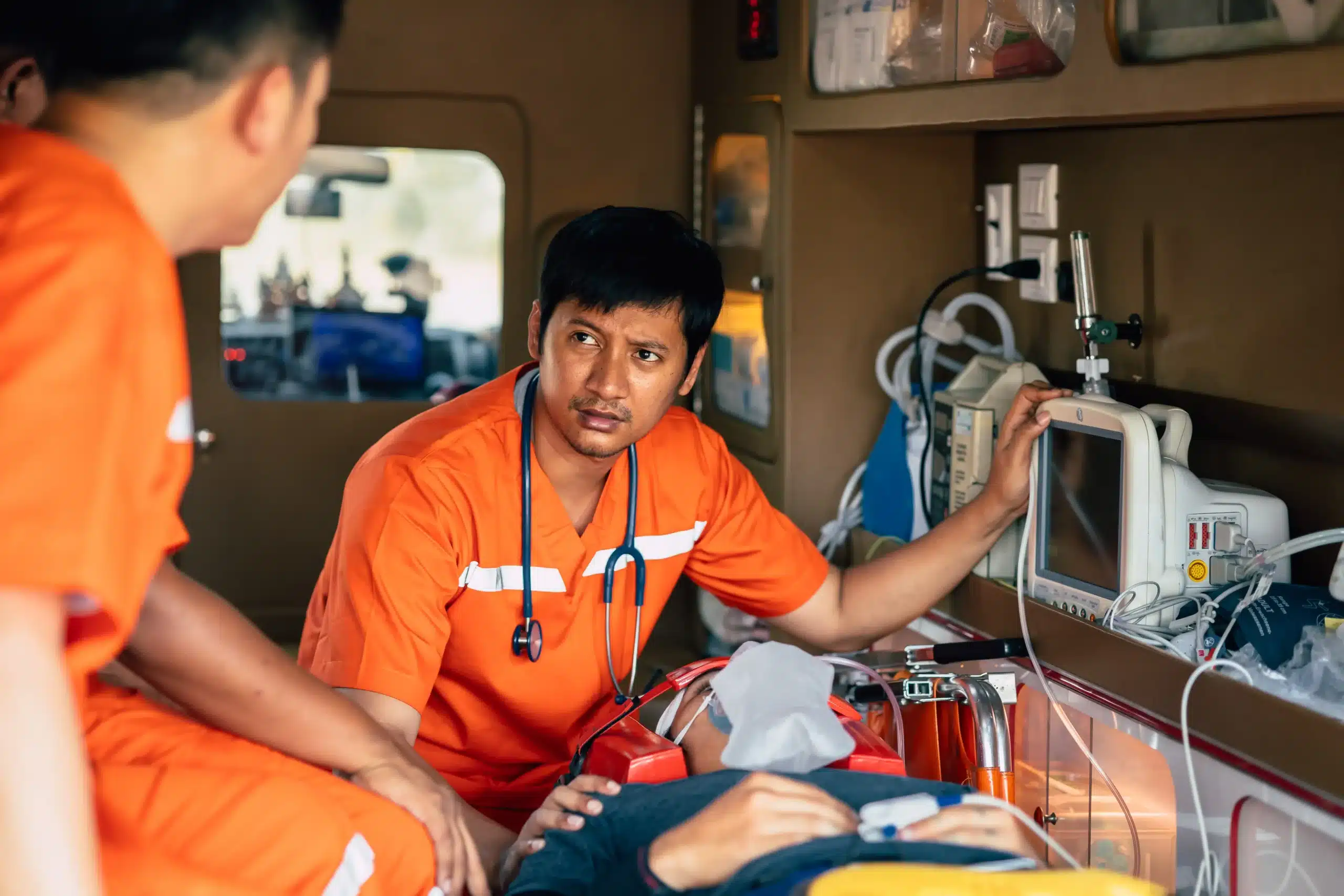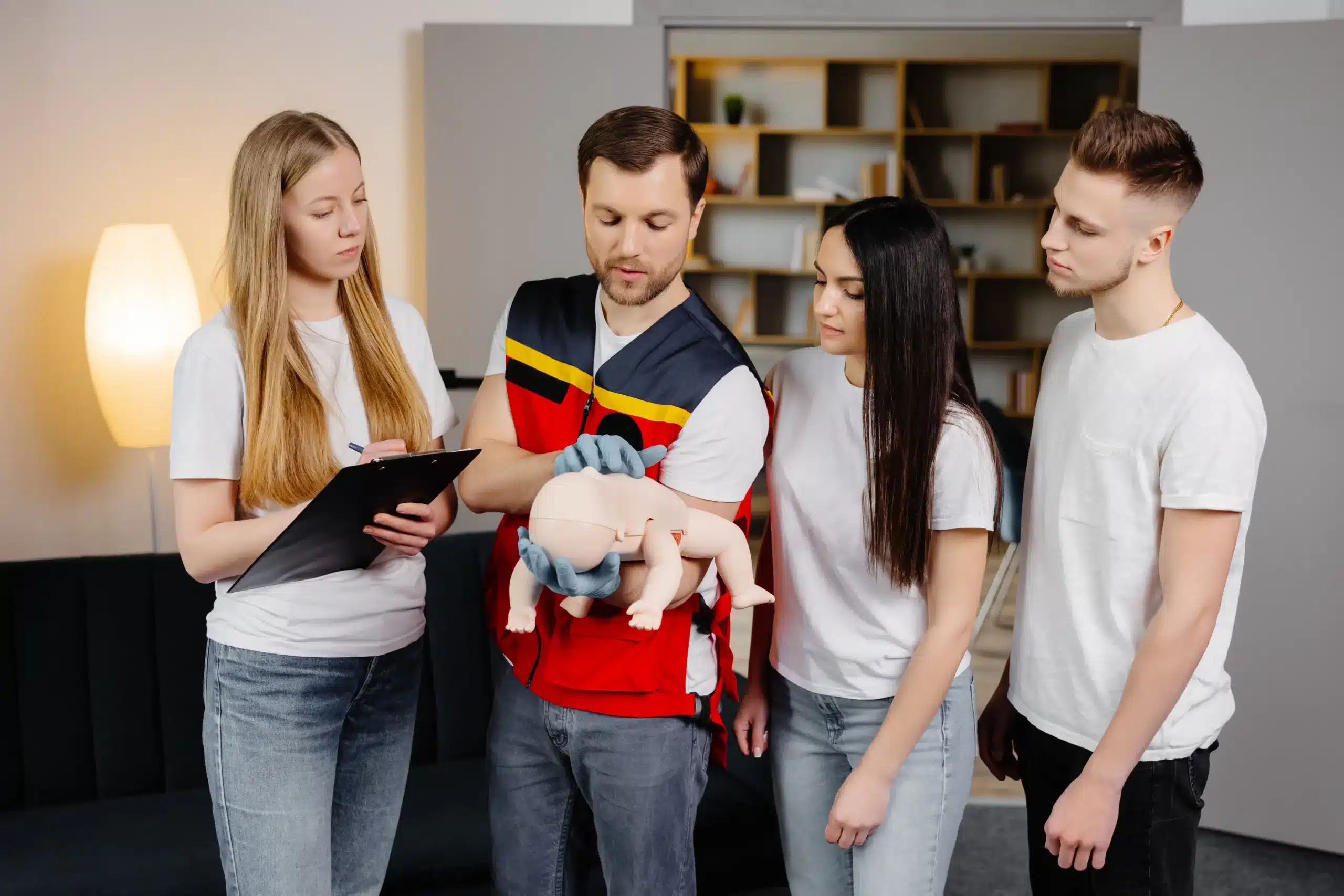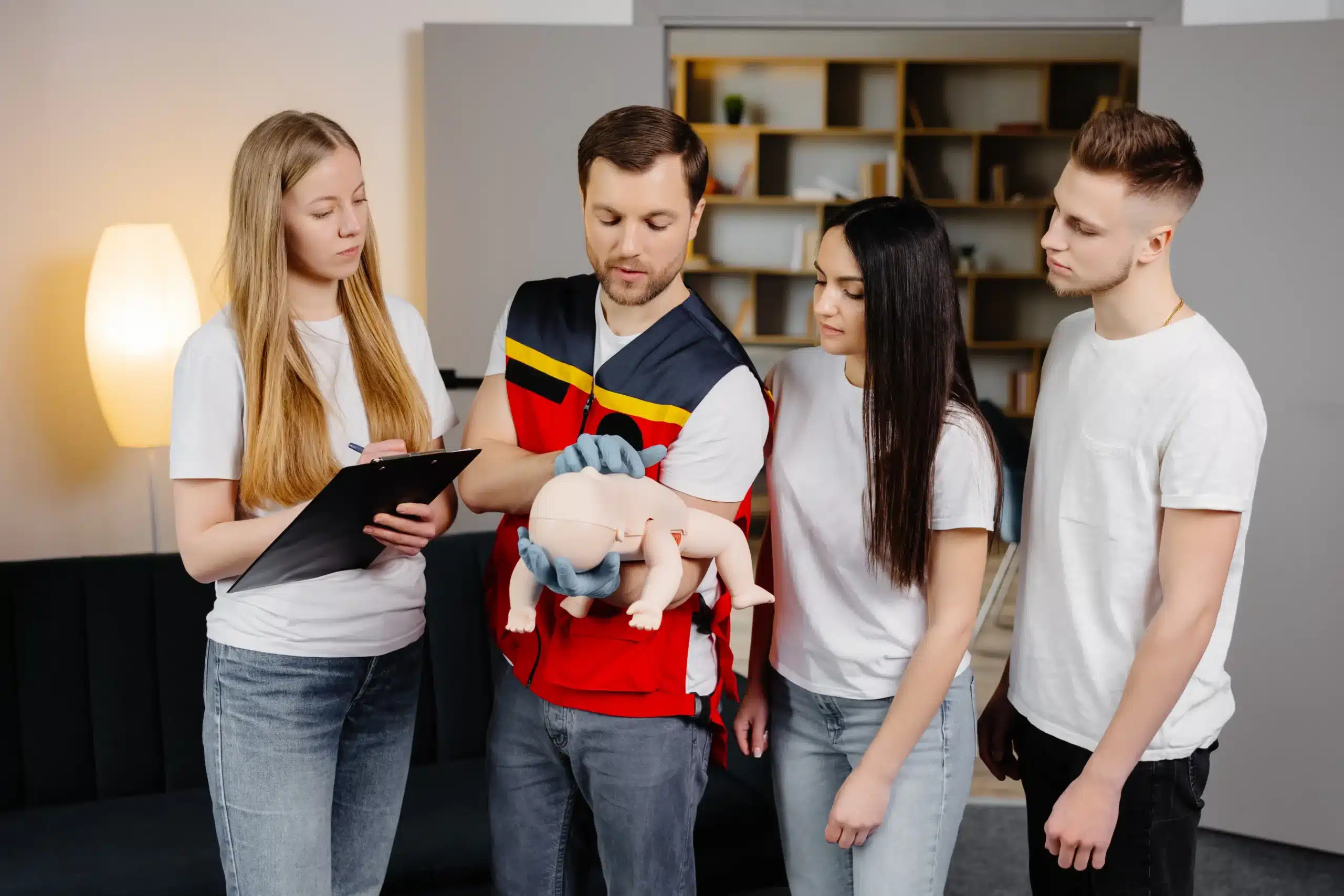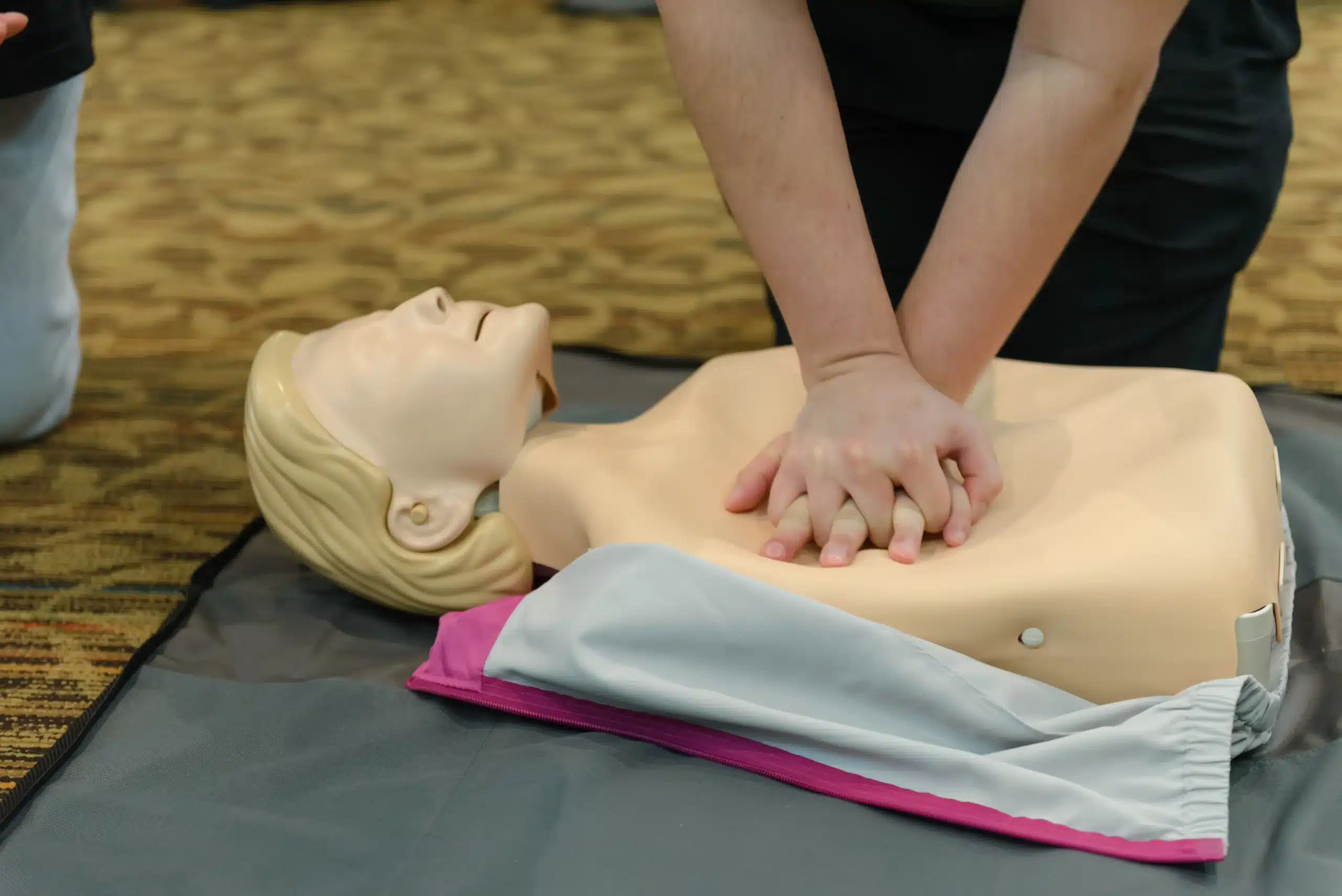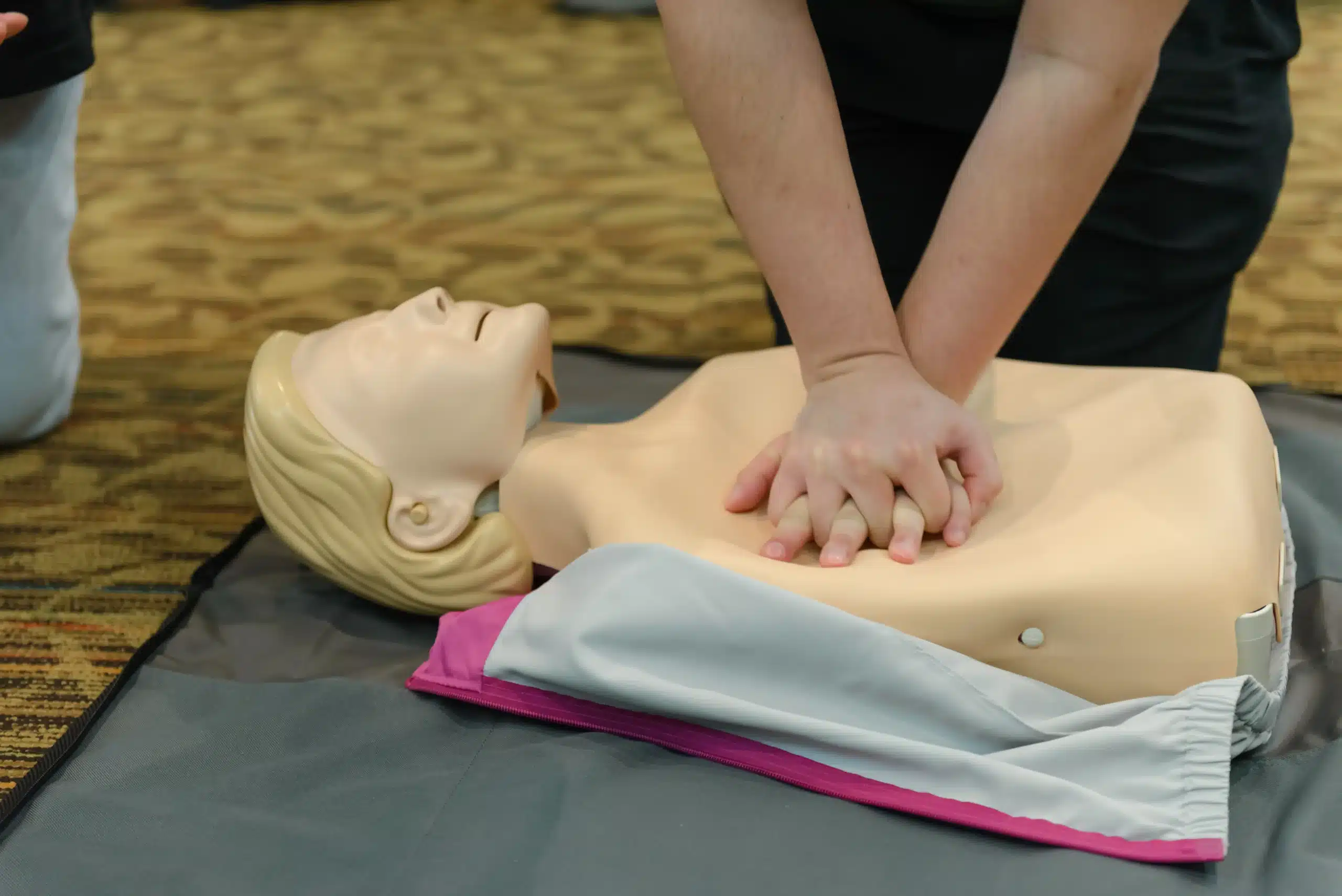Working in healthcare, especially around children, means being prepared for anything. When it comes to pediatric emergencies, having the right training can make all the difference. Pediatric Advanced Life Support (PALS) certification equips you with the skills to confidently handle critical situations involving infants and children. This article explores everything you need to know about getting your pediatric advanced life support in SF, from understanding the certification process to finding the right course for your needs. We’ll cover key topics, course formats, costs, and resources available in San Francisco to help you get started.
Key Takeaways
- PALS certification equips you with essential skills: Mastering pediatric assessment, airway management, and emergency response techniques is crucial for effectively managing pediatric emergencies. Choose a course format that suits your learning style and schedule.
- Finding the right PALS course in San Francisco is key: Explore various providers, compare costs, and consider factors like location, schedule, and available resources when selecting a program.
- Maintaining your PALS skills requires ongoing effort: Stay informed about recertification requirements, pursue continuing education, and regularly practice your skills to ensure you’re always prepared for pediatric emergencies. Utilize available resources and connect with local support networks.
What is Pediatric Advanced Life Support (PALS)?
Definition and Importance
Pediatric Advanced Life Support (PALS) is a specialized program designed to help healthcare providers respond to pediatric emergencies. This training gives you the skills to assess, diagnose, and manage critically ill infants and children. PALS certification focuses on a systematic approach to pediatric assessment, resuscitation, and stabilization. It emphasizes the importance of early recognition and intervention in life-threatening situations. This specialized training is crucial for any healthcare provider working with young patients.
Who Needs PALS Certification?
PALS certification is essential for healthcare professionals who regularly work with children. This includes doctors, nurses, paramedics, respiratory therapists, and emergency medical technicians. Anyone working in environments like emergency rooms, pediatric intensive care units (PICUs), and other acute care settings will benefit from this training. Safety Training Seminars offers PALS courses in San Francisco and throughout Northern California. Having a PALS certification demonstrates a commitment to providing high-quality care, and many employers require it.
Find PALS Certification in San Francisco
Finding the right PALS certification course in San Francisco can feel overwhelming with so many options. This section breaks down some of the leading providers to help you make an informed decision.
Safety Training Seminars
Safety Training Seminars offers PALS certification courses throughout the week in San Francisco. As a woman-owned American Heart Association Training Center, they focus on providing high-quality instruction and offer a low-price guarantee. They also offer other AHA courses like BLS, ACLS, CPR, and First Aid, making them a convenient option for all your certification needs.
American Heart Association
The American Heart Association (AHA) itself offers PALS courses in San Francisco. Taking a course directly through the AHA ensures you’re learning the most up-to-date material and following the latest guidelines. You can search their website for certified training centers and course dates in the San Francisco area.
Heart Start CPR
Heart Start CPR provides AHA-certified PALS courses in the San Francisco Bay Area. Their program emphasizes practical skills and real-world scenarios to prepare you for pediatric emergencies. Check their website for schedules and course details.
Kaiser Permanente Nurse Scholars Academy
If you’re affiliated with Kaiser Permanente, their Nurse Scholars Academy offers PALS certification courses along with other life support training. Their website provides course availability and registration information specific to Kaiser Permanente facilities.
Red Cross
The American Red Cross also offers PALS certification, often using a blended learning format. This combines online coursework with in-person skills sessions, offering flexibility for busy schedules. You can find more information about their PALS program and locate courses on their website.
PALS Course Formats and Duration
Choosing the right PALS course format is key to successfully completing your training. Let’s break down the different options available in San Francisco: in-person, blended learning, and online components. We’ll also cover the time commitment involved for each.
In-Person Training
Traditional in-person PALS training provides a structured learning environment with direct interaction with instructors and other healthcare providers. These courses typically run for about 12 hours and offer hands-on practice and real-time feedback. This format is a great option for those who thrive in a classroom setting and value face-to-face instruction. Safety Training Seminars offers in-person PALS courses in San Francisco.
Blended Learning
For those seeking more flexibility, blended learning combines online coursework with an in-person skills session. This format allows you to complete the theoretical portion of the course at your own pace online, usually taking around 3–4 hours. You’ll then attend a shorter in-person session, typically 30–40 minutes, focused on hands-on skills testing and validation. This blended learning approach offers a convenient way to fit PALS training into a busy schedule.
Online Components
Many PALS courses incorporate online components, even if they aren’t fully blended. These online modules often use simulation technology and interactive exercises to reinforce learning. While the online portion allows for self-paced study, remember that all PALS courses require an in-person skills check to receive your American Heart Association PALS certification.
Time Commitment
The total time commitment for PALS certification depends on the course format and whether you’re pursuing initial certification or recertification. Initial PALS certification typically requires around 12 hours for in-person training, while renewal courses are generally shorter, around 7 hours. Factor in additional time for pre-course study and travel to the training center. Consider various PALS training options to fit your schedule and learning preferences.
Key PALS Training Topics and Skills
PALS training gives healthcare providers the skills to confidently manage pediatric emergencies. From assessment to pharmacology, it covers a range of essential topics. Let’s take a closer look at some key areas.
Pediatric Assessment
Accurate and rapid assessment is crucial in any pediatric emergency. PALS training teaches systematic approaches to evaluate a child’s condition quickly and effectively. You’ll learn how to recognize signs of respiratory distress, shock, and other critical conditions. This training emphasizes a hands-on approach, giving you the practice you need to make quick, informed decisions in real-life situations. This focus on practical application helps improve patient outcomes. For more information on PALS courses, visit the Safety Training Seminars website.
Advanced Airway Management
Airway management is a cornerstone of PALS training. You’ll learn techniques for opening and maintaining a child’s airway, including advanced methods like intubation. The goal is to equip you with the skills to manage respiratory emergencies effectively, from basic interventions to more complex procedures. This part of the training addresses a critical aspect of pediatric care, ensuring you can provide necessary respiratory support during emergencies. Consider exploring RQI programs to further enhance your airway management skills.
Emergency Response
PALS training prepares you to respond effectively to a wide range of pediatric emergencies. You’ll learn how to recognize and manage conditions like cardiac arrest, respiratory failure, and shock. The curriculum covers essential steps for providing immediate life support, stabilizing the patient, and preparing for advanced care. This comprehensive approach ensures you can handle various critical situations, providing the best possible care for critically ill children. Safety Training Seminars offers a variety of courses to help you prepare for these situations, including ACLS courses for adult emergencies.
Pediatric Pharmacology
Understanding how medications work in children is essential for effective treatment. PALS training delves into pediatric pharmacology, focusing on the safe and appropriate use of drugs in emergencies. You’ll learn about dosages, administration routes, and potential side effects specific to pediatric patients. This knowledge is crucial for making informed decisions about medication administration in critical situations.
Emergency Simulations
PALS training often incorporates realistic simulations to reinforce learning and build confidence. These simulations provide a safe environment to practice your skills and decision-making abilities in high-pressure scenarios. Working through simulated emergencies helps you apply your knowledge, refine your techniques, and improve your overall preparedness for real-world pediatric emergencies. This practical experience is invaluable for developing the skills and confidence needed to provide effective care in critical situations. Learn more about the PALS courses offered in San Francisco.
PALS Certification Costs in San Francisco
Understanding the costs associated with PALS certification is an important step in your training journey. Let’s break down the typical expenses for initial certification, recertification, and course materials.
Initial Certification Costs
In San Francisco, initial PALS certification typically costs around $290. This fee generally covers the comprehensive training program, including the online portion, the in-person skills session, and your official PALS certification card. Expect the initial PALS course to take approximately 12 hours to complete.
Recertification Fees
If you’re already PALS certified and due for renewal, the recertification fee is usually around $190. The PALS renewal course is shorter than the initial certification, often about 7 hours. This shorter format makes it a manageable option for busy professionals refreshing their skills and maintaining their credentials.
Materials and Resources
Many PALS providers allow you to order textbooks for in-person courses. Keep in mind that you’ll likely need to schedule an appointment for textbook pickup. If your course includes an online component, ensure your computer system meets the requirements for the online learning platform, which might include compatibility with specific operating systems and web browsers.
Cost Comparison
Finding affordable, high-quality training is a priority. Some providers offer a low price guarantee and are open to matching competitor prices for PALS certification. Check out Safety Training Seminars’ low price guarantee as a helpful way to save money without compromising the quality of your training.
What to Expect in Your PALS Course
Getting ready for your PALS course? Here’s a glimpse of what awaits, from pre-course prep to earning your certification.
Prepare for Your Course
PALS, or Pediatric Advanced Life Support, equips healthcare providers with the knowledge and skills to respond to pediatric emergencies. Before your course, familiarize yourself with core concepts like pediatric anatomy and physiology. This foundational knowledge will set the stage for the advanced skills and protocols you’ll learn. Some courses may require pre-course work or recommend study materials to review beforehand.
Practice Hands-On Skills
The PALS Provider Course from the American Heart Association focuses on practical application. Expect to engage in hands-on simulations and scenarios designed to reinforce essential skills. You’ll practice managing pediatric emergencies, including respiratory distress, shock, and cardiopulmonary arrest. These realistic exercises will build your confidence and competence in providing critical care.
Evaluation and Certification
Your PALS course will include an evaluation to assess your understanding and ability to perform the required skills. This typically involves a written exam and practical skills tests. Successful completion earns you your PALS certification, often provided through programs like the American Heart Association’s RQI program. This program promotes continuous quality improvement and helps ensure you maintain your skills.
Certification Benefits
Earning your PALS certification demonstrates your commitment to providing high-quality pediatric care. It enhances your professional credentials and can create new opportunities. More importantly, it empowers you to make a real difference in the lives of children facing medical emergencies. Your expertise contributes to improved outcomes and strengthens the chain of survival for young patients.
Maintain Your PALS Certification
Keeping your PALS skills sharp is crucial for providing the best possible care to young patients. This section covers how to maintain your PALS certification and stay at the top of your game.
Renewal Requirements
PALS certification is valid for two years. To stay certified, you’ll need to recertify before it expires. Knowing the renewal process and requirements ahead of time makes recertification smoother and ensures you’re always ready to respond to pediatric emergencies. Plan ahead and schedule your recertification course in advance to avoid any lapses in your credentials.
Continuing Education
Continuing education is key to maintaining your PALS certification and expanding your skillset. Many healthcare professionals, including RNs, paramedics, and EMTs, can earn continuing education credits through PALS courses. PALS training offers valuable opportunities to refresh your knowledge and stay up-to-date on the latest guidelines and best practices in pediatric care. Check with your licensing board or professional organization to understand the specific continuing education requirements for your role.
Update Your Skills
Beyond formal recertification, regularly practicing your skills is essential for effective pediatric emergency care. Frequently review airway management protocols and other key procedures. Hands-on practice and simulation training can significantly improve your confidence and competence in real-life scenarios. Consider joining workshops or peer-to-peer practice sessions to stay proficient and refine your techniques. Regular practice helps solidify your knowledge and ensures you can confidently apply it when it matters most.
Choose the Right PALS Course
Choosing the right PALS course is crucial for effective learning and successful certification. Consider these factors, ask yourself key questions, and find a course that matches your learning style.
Factors to Consider
When selecting a PALS course, understand the importance of the certification itself. PALS equips healthcare providers with the skills to manage pediatric emergencies, ultimately improving patient outcomes. This training goes beyond theory, providing hands-on practice to build confidence and competence. As noted in this guide to PALS training, PALS certification provides both the knowledge and the practical training necessary for effective emergency response.
Questions to Ask
Before signing up for a course, think about your current skill set and identify areas for improvement. Ask yourself what specific skills you aim to develop. For example, a BLS course covers CPR techniques and responses to various medical emergencies, which are fundamental for sound decision-making in critical situations. Clarifying your learning goals, as discussed in this article on PALS certification, helps you choose the most relevant and beneficial training.
Match Course to Learning Style
Your learning style plays a significant role in how effectively you absorb information. Safety Training Seminars offers AHA-certified PALS courses alongside other essential certifications like CPR, BLS, ACLS, First Aid, and EMSA. This range of options, highlighted in this overview of PALS courses, allows you to select a course format—whether in-person, blended, or online—that best suits your preferences and schedule. Finding the right fit maximizes your learning experience and sets you up for success.
Overcome PALS Certification Challenges
Getting your PALS certification is a rewarding but demanding process. These tips can help you overcome common hurdles and succeed in your training.
Manage Your Time
PALS courses require a substantial time commitment. To make it work, realistically assess your schedule and find a course that fits. Safety Training Seminars offers various scheduling options, including weekend and evening classes, to accommodate busy professionals. Consider breaking your study into smaller, manageable chunks and establish a consistent study routine. Even short, focused study sessions are more effective than infrequent, long ones.
Master Complex Material
PALS content covers complex pediatric emergencies and advanced life-saving skills. Don’t feel overwhelmed! Reinforce your learning by using supplemental resources. Practice exams and case studies can help you retain critical concepts and apply them effectively. Many programs offer additional practice materials.
Develop Practical Skills
Hands-on practice is crucial for mastering PALS skills. Regularly review airway management protocols and actively participate in any simulation training offered during your course. These simulations provide a safe environment to practice your skills and build confidence for real-life scenarios. Consider supplementing your training with additional practice sessions if available.
Balance Work and Training
Juggling work and PALS training can be tricky. Explore different training formats to find one that complements your professional life. Online components can offer flexibility, while weekend or evening classes can minimize disruption to your work schedule. Talk to your employer; some organizations offer support for professional development, which might help cover costs or provide scheduling flexibility.
PALS Certification Resources in San Francisco
Finding the right resources and support is key to succeeding in your PALS certification journey. Here’s a look at what’s available in San Francisco:
Study Materials and Online Resources
The American Heart Association (AHA) offers a variety of resources to help you prepare for your PALS certification. You’ll find study materials, practice tests, and other valuable information on their website. Safety Training Seminars, a woman-owned AHA Training Center, also provides PALS courses in San Francisco. They’re a great resource for both initial certification and renewal.
Local Support Groups
Connecting with other healthcare professionals can provide valuable support and encouragement as you pursue your PALS certification. Networking with colleagues and peers who have completed PALS training can offer insights and practical tips. Consider reaching out to local hospitals, clinics, or professional organizations to find study groups or mentoring opportunities.
Flexible Scheduling
Juggling work, family, and other commitments can make finding time for PALS certification challenging. Fortunately, many training centers in San Francisco offer flexible scheduling options. Safety Training Seminars provides courses every day of the week, making it easier to fit training into your busy schedule. Understanding the time commitment involved is also important. The AHA PALS Certification class is approximately 12 hours long, so factor that into your planning. Look for courses that offer weekend or evening options, or consider blended learning formats that combine online modules with in-person skills sessions.
Related Articles
- PALS Classes in San Francisco (Bayshore) – San Francisco CPR Classes
- Advanced Cardiac Life Support (ACLS) in SF: Get Certified – San Francisco CPR Classes
- ACLS Courses San Francisco: Your Comprehensive Guide – San Francisco CPR Classes
- BLS, ACLS, PALS, CPR & First-aid Classes in San Francisco, CA
- Low-Cost CPR Training in Northern California: A Guide – San Francisco CPR Classes
Frequently Asked Questions
What is the difference between PALS, BLS, and ACLS?
BLS (Basic Life Support) teaches fundamental life-saving procedures like CPR. ACLS (Advanced Cardiovascular Life Support) focuses on advanced techniques for adults, while PALS (Pediatric Advanced Life Support) specifically addresses the needs of infants and children. Each level builds upon the previous one, with PALS requiring a strong foundation in BLS principles.
How long does my PALS certification last, and how do I renew it?
PALS certification is valid for two years. To renew, you’ll need to complete a PALS recertification course before your current certification expires. Recertification courses are typically shorter than the initial training. Make sure to plan and register in advance to maintain your credentials without interruption.
What if I have a busy schedule? Are there flexible PALS course options?
Yes, many providers understand the demands of a busy schedule. Look for courses offered on weekends, evenings, or in a blended learning format. Blended learning combines online modules with a shorter in-person skills session, offering greater flexibility.
How much does PALS certification cost in San Francisco?
The cost varies depending on the provider and whether you’re pursuing initial certification or recertification. Initial PALS certification generally costs between $250 and $300, while recertification is usually less expensive, around $150 to $200. Some providers offer discounts or a low-price guarantee, so it’s worth comparing options.
What kind of career opportunities are available with PALS certification?
PALS certification is highly valued in healthcare settings that serve infants and children. It opens doors to positions in emergency rooms, pediatric intensive care units, and other acute care environments. Many employers require PALS certification for roles involving direct patient care, making it a valuable asset for career advancement.



